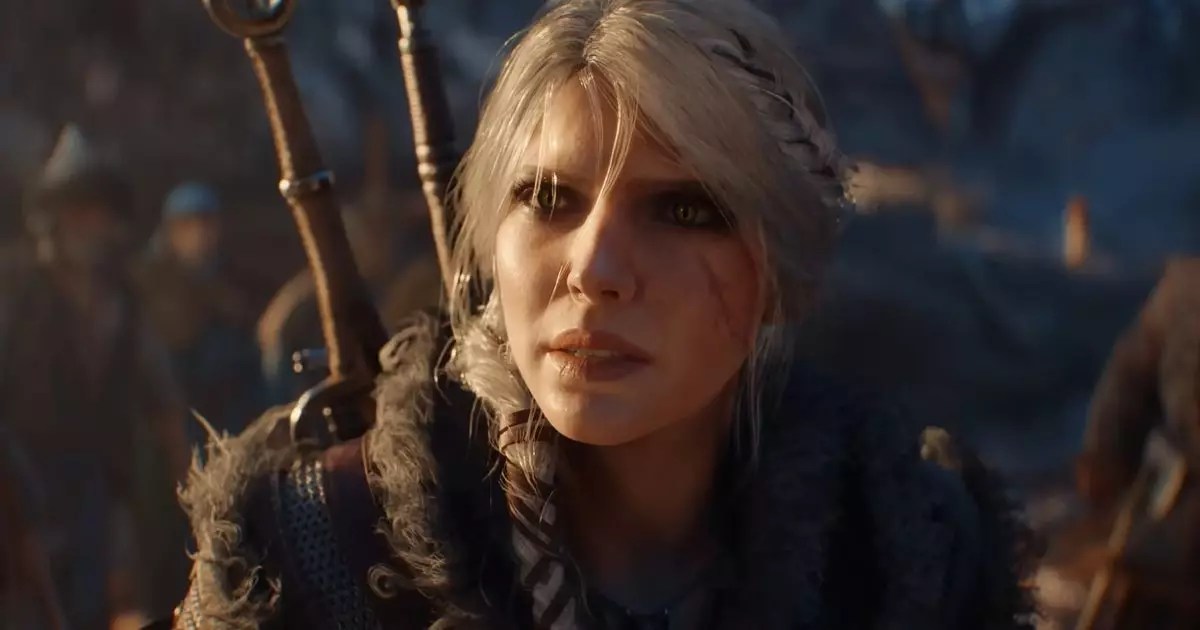The gaming community has been buzzing with speculation and excitement surrounding the upcoming installment of The Witcher franchise, aptly dubbed “The Witcher 4.” However, recent revelations from CD Projekt Red reveal that this next chapter is still in its “most intensive” production phase, effectively dousing the immediate flames of anticipation. As fans eagerly await this new adventure, it’s essential to assess both the promising developments and the sobering timeline for the release of the game.
Timeline: Anticipation Meets Reality
In a candid financial briefing, the developers made it clear that The Witcher 4 won’t be hitting the gaming shelves before 2027. This announcement, while disappointing for many ardent fans, follows a logical trajectory for a franchise that prides itself on detailed storytelling and elaborate world-building. CD Projekt Red’s Chief Financial Officer, Piotr Nielubowicz, articulated that the game would remain outside the window of their current incentive program, emphasizing that a responsible approach to quality over speed is being prioritized. Investors might frown on delayed releases, yet, in this context, it inherently reflects the studio’s commitment to enhancing user experience — a wise move in a market where unfinished games often leave a bitter aftertaste.
The production timeline may feel protracted, yet it’s essential to appreciate the nuances of game development. Major game releases often require extended periods to ensure that storytelling, gameplay mechanics, and visual aesthetics coalesce harmoniously, leading to a refined final product. While two or more years may seem like a long wait, considering the usual thoroughness of CD Projekt Red, the anticipation crescendo is likely to be worth every moment when the game finally debuts.
Artistic Integrity vs. Technological Advancements
A noteworthy discussion from the earnings call revolved around the use of generative AI in the game’s development. Contrary to trends observed in contemporary game design, CD Projekt Red has made the strategic decision to sidestep AI technologies for The Witcher 4. Michał Nowakowski’s remarks reflect a thoughtful evaluation of the potential pitfalls associated with copyright and intellectual property rights. This cautious yet principled stance serves to underscore a commitment to artistic integrity that can otherwise be overshadowed by hasty adoption of cutting-edge technologies.
Interestingly, the acknowledgment that the studio is exploring AI solutions for future projects opens the door for fascinating eventualities. Customizing AI to suit their innovative storytelling approach may position CD Projekt Red as pioneers, should they successfully navigate the complexities of legal and ethical considerations inherent in such technologies.
A Shift in Protagonists and Themes
In a fresh twist that promises to redefine the user experience, The Witcher 4 will center around Ciri as the leading character, diverging from the much-loved Geralt. This pivot allows room for the exploration of pressing social themes, particularly the portrayal of sexism within the game’s rich fantasy milieu. If approached with the sensitivity and depth required, such narratives can greatly enhance gameplay by providing layers of relatability to players—not merely viewing Ciri as another fantasy heroine but as a complex character navigating through real-world issues. It’s an ambitious and commendable attempt that could resonate profoundly within the current socio-political landscape.
Moreover, the return of the beloved card game Gwent—which many fans fondly remember from previous iterations—only adds another layer of excitement to the upcoming title. This blending of new and familiar elements indicates that the developers understand the delicate balance necessary to capture both longtime fans and a new audience.
The Broader Context: What This Means for Gamers
As we navigate the landscape of anticipation for The Witcher 4, it’s crucial to approach the situation with both excitement and patience. The decision to prolong the release date, while initially disheartening, ensures a higher caliber game that fans can dive into without reservations. Additionally, the studio’s dedication to exploring meaningful storytelling through complex characters such as Ciri represents a fresh and innovative path for the franchise.
Ultimately, while the wait for The Witcher 4 may feel tormentingly long, the hope is that, when it arrives, it will redefine expectations and carve a new legend within the already storied annals of gaming. As players, the value of a well-crafted narrative interwoven with human experiences cannot be underestimated, and CD Projekt Red’s current trajectory appears to recognize that vital balance. With thoughtful storytelling, immersive world-building, and the return of familiar elements like Gwent, the anticipation for The Witcher 4 need not be a mere wait, but rather a journey brimming with potential.


Leave a Reply